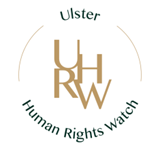Government proposals for dealing with the legacy of the past must be abandoned
The UK Government Command Paper proposals to introduce a statute of limitations for terrorist crimes and create an information recovery body with an oral history initiative are unacceptable for victims of terrorism and former members of the security forces, who defended and protected democracy and human rights against terrorism during the Troubles.
The justification given for the introduction of a statute of limitations is that there is a diminishing prospect of seeing successful prosecutions. However, this is not a valid reason for removing the possibility of seeing justice done. Perpetrators of acts of terrorism should always be made accountable if new evidence, that could lead to a conviction, becomes available. Recent investigations against security forces are not a reason for introducing such a statute of limitations either, as any perceived unfairness can be considered during the investigation carried out by the police and the way the Public Prosecution Service makes its decisions.
What the Government calls a statute of limitations is in fact an amnesty. An amnesty applies to past offences, which is what the Government is seeking to do, while a statute of limitations usually has no retroactive effect. Furthermore, a statute of limitations is prohibited under international law for crimes against humanity which many, if not all, crimes committed by terrorist organisations during the Troubles were. Consequently, a statute of limitations is an ill-advised idea and should be abandoned by the Government.
The proposed information recovery body is to deal with deaths and serious injuries. It is suggested that once the threat of prosecution is removed by way of a statute of limitations, those with potentially useful information about a Troubles-related death or serious injury would be encouraged to come forward. Clearly, this process would serve the interests of terrorists and their sympathisers, who would be free to re-write the history of the Troubles, vilifying security forces and justifying terrorism. It will be of little help to victims of terrorism since there will be no way of verifying that the information provided is truthful. The disclosure of information should instead come from State agencies following a reliable legal investigative process that would allow the information to be challenged and verified.
If the possibility of prosecuting terrorists is removed, the proposed oral history initiative would favour storytelling from people from all backgrounds, including those who engaged in terrorism and their sympathisers. Those involved in terrorism would seek to justify their engagement in terrorism and to blame the authorities and the security forces for the Troubles. Innocent victims and former members of the security forces would be deterred from engaging in this process and the educational use of this initiative would be doomed to failure. There is a fear that such an oral history initiative would have the opposite outcome of encouraging radicalisation among younger generations.
The fulfilment of human rights obligations by the United Kingdom, mainly under Article 2 of the European Convention on Human Rights, implies that the existing legal processes are to be maintained for the recovery of information with a view to identifying and prosecuting perpetrators of acts of terrorism. There is therefore a need for a positive alternative that prevents terrorists and their sympathisers from corrupting the investigative processes designed to establish the truth, deliver justice and create historical archives for educational purposes with the potential for achieving reconciliation. Law-abiding citizens and former members of the security forces throughout the United Kingdom should be prepared along with the Ulster Human Rights Watch to engage in the implementation of such an alternative.
